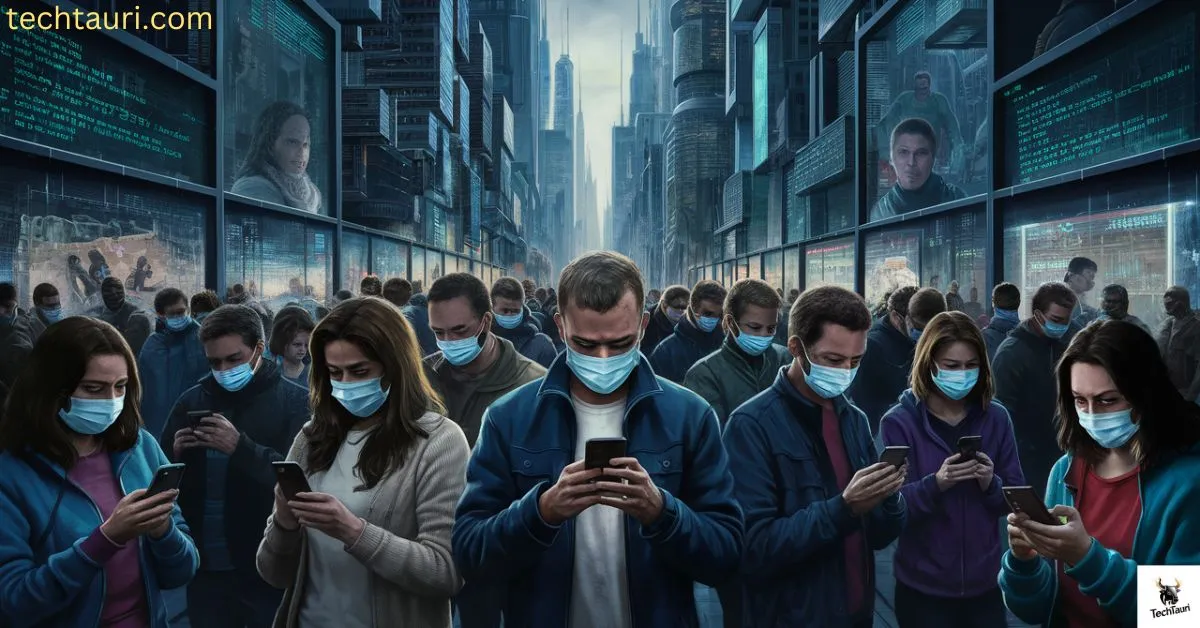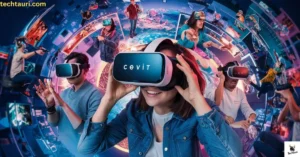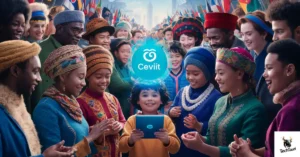Social media apps are a big part of our daily lives, but they often become repetitive and dull. While these platforms connect us with friends and provide entertainment, they also flood us with the same types of content over and over.
This repetition can make using social media feel monotonous and uninspiring. From endless selfies to constant memes, the predictable nature of these apps can lead to a sense of banality.
By exploring the depths of this banality, we can better understand how social media affects our engagement and mental well-being. It’s important to recognize these patterns and seek more meaningful interactions online.
social media definition
Social media refers to digital platforms and applications designed for users to create, share, and interact with content and each other. These platforms facilitate communication and community building through various forms of media, including text, images, videos, and audio.
Social media includes popular sites like Facebook, Instagram, Twitter, TikTok, and LinkedIn, each serving different purposes and audiences. These networks allow individuals to connect with friends, family, and people with similar interests, while also enabling businesses to reach and engage with customers.
The interactive nature of social media fosters a dynamic exchange of information and ideas, making it a powerful tool for personal expression, marketing, news dissemination, and social interaction.
Social Media App Banality
Social media app banality refers to the repetitive and dull nature of content on platforms like Facebook, Instagram, and Twitter. Users often see the same types of posts, such as selfies, memes, and advertisements, which can make the experience feel monotonous and uninspiring.
This lack of variety and originality in content can lead to boredom and a sense of wasted time. Recognizing the banality in social media apps highlights the need for more meaningful and diverse interactions online.
By seeking out unique content and engaging in deeper conversations, users can break free from the repetitive cycle and find more value in their social media experiences.
Content Repetition and Overload
Content repetition and overload on social media apps can make the user experience monotonous and overwhelming. Frequent exposure to similar posts, advertisements, and updates can lead to fatigue and reduced engagement.
| Aspect | Explanation | Example |
| Selfies and Photos | Repeated images of people’s daily lives and appearances. | Daily selfies, similar vacation photos. |
| Memes | The same jokes and memes circulating among users, losing novelty quickly. | Popular memes reposted by multiple users. |
| Advertisements | Continuous and similar ads targeting users based on their browsing habits. | Repeated ads for the same product or service. |
| Trends and Challenges | Users engaging in the same viral challenges, creating a uniform content flow. | TikTok dance challenges, Instagram trends. |
| News Updates | Frequent and similar news stories shared across different platforms. | Reposting the same news articles. |
| Status Updates | Redundant updates about daily activities or feelings. | “Good morning!” posts every day. |
Recognizing these patterns can help users seek out more diverse and enriching content, enhancing their social media experience and preventing burnout.
The Rise of social media and Its Impact on Our Lives
The rise of social media has dramatically changed how we connect, communicate, and consume information. These platforms have woven themselves into the fabric of daily life, influencing various aspects of our personal and professional activities.
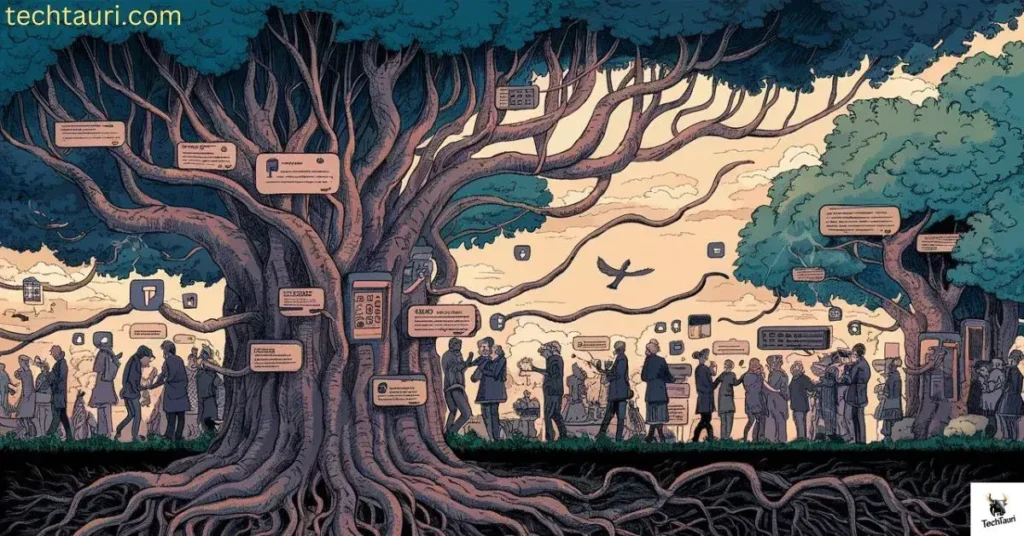
- Increased Connectivity: Social media allows us to stay in touch with friends and family, regardless of geographic distance.
- Information Sharing: News and information spread quickly through social media, making it easier to stay updated on current events.
- Marketing and Business: Businesses use social media for marketing, reaching a global audience with targeted advertising.
- Social Movements: Platforms have become powerful tools for organizing and spreading awareness about social issues.
- Entertainment: Social media provides endless entertainment options, from videos to games, keeping users engaged.
- Mental Health: Constant exposure to curated content can affect mental health, leading to issues like anxiety and depression.
- Privacy Concerns: The extensive sharing of personal information raises concerns about privacy and data security.
Understanding the rise and impact of social media helps us navigate its benefits and challenges, fostering a more balanced and mindful use of these powerful tools.
How Social Media Promotes Banality and Superficial Connections
Social media often promotes banality and superficial connections by encouraging repetitive content and shallow interactions. Users frequently post similar types of content, like selfies, memes, and daily updates, which quickly become boring and predictable.
The platforms favor quick likes and comments over meaningful conversations, leading to surface-level connections. The people tend to share only the highlights of their lives, creating a superficial view of reality.
Many users chase trends to gain likes and followers, rather than sharing unique, personal content. This focus on repetitive, shallow interactions can make social media feel empty and unfulfilling, pushing users to seek more genuine connections elsewhere.
Social Media Use Linked to Increased Anxiety and Depression
Using social media too much can lead to more anxiety and depression. Here’s how:
- Comparison: Seeing others’ highlight reels can make people feel inadequate or left out.
- Cyberbullying: Negative comments and online harassment can harm mental health.
- Fear of Missing Out (FOMO): Constant updates can make people anxious about missing social events or trends.
- Sleep Disruption: Late-night scrolling can interfere with sleep, leading to mood problems.
- Information Overload: The constant stream of news and updates can be overwhelming and stressful.
These factors contribute to increased anxiety and depression among frequent social media users, highlighting the need for mindful and balanced use of these platforms.
social media advantages and disadvantages
Social media offers various benefits, but it also comes with drawbacks that can impact our lives in significant ways.
| Advantages | Explanation | Example |
| Increased Connectivity | Social media allows people to connect with friends, family, and even strangers from around the world. | Reuniting with old friends or making new ones online. |
| Information Sharing | Platforms like Twitter and Facebook enable rapid dissemination of news and information, keeping users informed. | Sharing news articles or updates about important events. |
| Business and Marketing Opportunities | Social media provides businesses with cost-effective ways to reach their target audience and promote their products. | Advertising products or services on platforms like Instagram or LinkedIn. |
| Community Building | Online communities and groups allow people with similar interests to connect and share ideas, fostering a sense of belonging. | Joining a Facebook group for fans of a specific hobby or interest. |
| Educational Resources | Platforms like YouTube and LinkedIn offer a wealth of educational content, from tutorials to online courses. | Learning new skills or gaining knowledge through video tutorials or articles. |
| Disadvantages | Explanation | Example |
| Privacy Concerns | Social media platforms collect and share user data, raising concerns about privacy and data security. | Personal information being shared or sold to advertisers without consent. |
| Cyberbullying | Negative interactions, harassment, and bullying occur online, leading to emotional distress and mental health issues. | Hurtful comments or messages received on social media platforms. |
| Distraction and Procrastination | Social media can be addictive, leading to wasted time and decreased productivity. | Spending hours scrolling through feeds instead of working or studying. |
| Misinformation | False or misleading information spreads quickly on social media, making it difficult to discern fact from fiction. | Believing and sharing fake news stories without verifying their accuracy. |
| Negative Mental Health Effects | Excessive social media use has been linked to increased anxiety, depression, and feelings of loneliness. | Feeling inadequate or left out after comparing oneself to others on social media. |
Understanding both the advantages and disadvantages of social media usage is essential for making informed decisions about how to engage with these platforms responsibly. It’s crucial to strike a balance between enjoying the benefits while mitigating the potential negative impacts on mental health and well-being.
Superficial Interactions and Approval Seeking
On social media, interactions often remain superficial as users prioritize seeking approval from others. Conversations tend to be brief, centered more on gaining likes and comments than building meaningful connections.
Users may post content primarily to receive validation, leading to a constant comparison of likes and followers and fostering feelings of inadequacy. This emphasis on seeking external validation perpetuates a cycle of attention-seeking behaviors, detracting from genuine connections and self-confidence.
social media fragmentation
Social media fragmentation refers to the trend where people use multiple social media platforms instead of focusing on just one. Here’s why it happens:
- Diverse Preferences: Different platforms cater to various interests and communication styles, prompting users to spread their social interactions across multiple apps.
- Specialized Content: Each platform offers unique features and content formats, encouraging users to use specific platforms for specific purposes, such as sharing photos on Instagram or professional networking on LinkedIn.
- Audience Segmentation: Users may join different platforms to engage with specific communities or demographics, resulting in fragmented social circles across various apps.
- Platform Evolution: As social media platforms evolve and introduce new features, users may explore and adopt different platforms over time, further contributing to fragmentation.
This trend towards social media fragmentation reflects the diverse needs and preferences of users leading to a more decentralized online social landscape.
FOMO and Comparison Culture
FOMO, or Fear of Missing Out, and comparison culture are pervasive phenomena in today’s social media-driven world. These psychological effects can significantly impact individuals’ mental health and well-being.
| Aspect | Explanation | Example |
| Fear of Missing Out (FOMO) | FOMO refers to the anxiety or unease people feel when they believe others are experiencing enjoyable activities without them. | Feeling anxious or left out when seeing friends’ posts about parties or events you weren’t invited to attend. |
| Comparison Culture | Comparison culture involves constantly comparing oneself to others, particularly based on their social media posts and achievements. | Feeling inadequate or envious when seeing others’ highlight reels on social media. |
| Impact on Mental Health | FOMO and comparison culture can contribute to feelings of loneliness, anxiety, and depression, as well as a diminished sense of self-worth. | Experiencing increased stress and dissatisfaction with one’s own life due to constant comparisons and feelings of missing out. |
| Coping Strategies | Developing healthy coping strategies, such as limiting social media use, practicing gratitude, and focusing on personal achievements, can help mitigate the negative effects of FOMO and comparison culture. | Engaging in activities that bring joy and fulfillment, rather than seeking validation or comparing oneself to others, can promote greater contentment and well-being. |
Understanding the impact of FOMO and comparison culture is crucial for individuals to prioritize their mental health and cultivate a more positive relationship with social media. Finding a balance between staying connected and avoiding unhealthy comparisons can lead to greater overall happiness and fulfillment.
Effect on Mental Health
The pervasive nature of FOMO, or Fear of Missing Out, and comparison culture on social media can significantly impact individuals’ mental health. Experiencing constant anxiety and feelings of inadequacy from comparing oneself to others’ seemingly perfect lives can lead to increased levels of stress, loneliness, and depression.
It can also contribute to a diminished sense of self-worth and satisfaction with one’s own life. Developing healthy coping mechanisms, such as limiting social media use, practicing gratitude, and focusing on personal achievements, is essential in mitigating these negative effects and promoting overall well-being.
BeReal Key Features
BeReal stands out with its emphasis on authenticity and real connections by offering key features like no filters, real-time interaction through live video chats, and robust privacy protection. By promoting genuine moments and fostering a supportive community, BeReal provides users with a refreshing and meaningful social media experience.
Understanding Boring Social Media
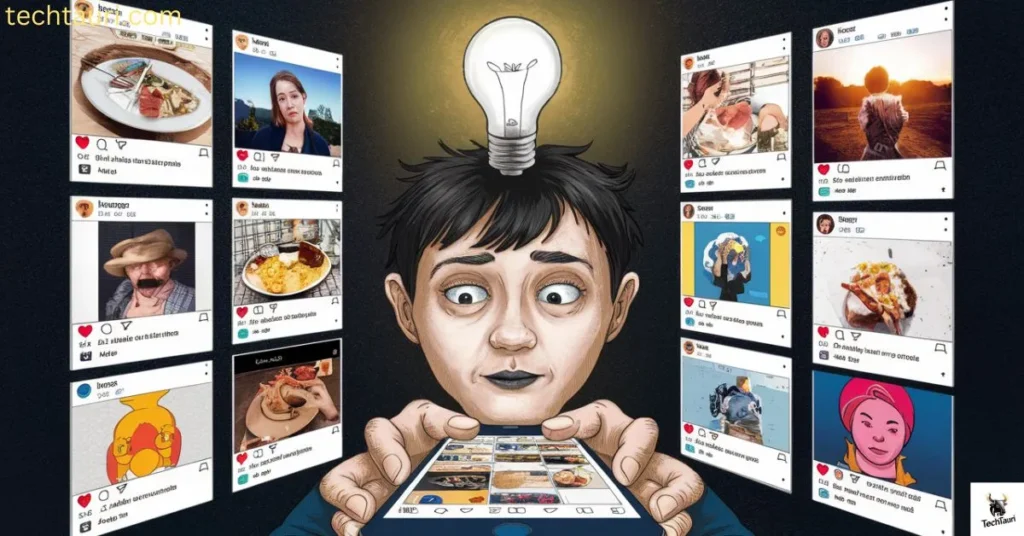
- Repetitive Content: Boring social media often features repetitive posts, such as daily routines or mundane activities, which fail to capture attention.
- Lack of Engagement: Posts may lack engagement or interaction, with few likes, comments, or shares, indicating a disinterest or disconnect from the audience.
- Uninspiring Visuals: Boring social media content often lacks visually appealing elements, such as dull images or generic stock photos, failing to captivate users’ interest.
- Monotonous Tone: Posts may have a monotonous tone, lacking excitement or enthusiasm, making them less engaging for the audience.
- Absence of Creativity: Content may lack creativity or originality, with repetitive themes or recycled ideas, failing to offer anything new or interesting to the audience.
- Predictable Topics: Boring social media often revolves around predictable topics, such as generic motivational quotes or clichéd life updates, lacking novelty or intrigue.
- Low Information Value: Posts may lack substance or informative value, offering little to no meaningful insights or useful information to the audience.
- Minimal Emotional Impact: Boring social media fails to evoke emotional responses from the audience, lacking compelling storytelling or relatable content that resonates with users.
- Overly Promotional: Content may come across as overly promotional or sales-driven, focusing solely on self-promotion or product advertising, rather than providing value or entertainment to the audience.
- Lack of Personal Connection: Boring social media often lacks a personal connection with the audience, with impersonal or detached content that fails to establish rapport or build relationships with users.
FAQ’S
Are you worried you use social media app banality too much?
Feeling concerned about excessive use of banal social media apps?
What are the important features of social media explain?
Key features of social media include connectivity, content sharing, community building, and accessibility.
What is the banality of life social media app?
The banality of life social media app refers to the repetitive and dull content often found on platforms, lacking originality and depth in user interactions.
Can you think of any social media apps?
Certainly! Some popular social media apps include Facebook, Instagram, Twitter, TikTok, Snapchat, LinkedIn, and Pinterest.
Conclusion
The understanding the impact of social media fragmentation, FOMO, and comparison culture is crucial for individuals to navigate their online experiences responsibly. By recognizing the advantages and disadvantages of social media usage and prioritizing authenticity and genuine connections, users can foster a.
The healthier and more fulfilling relationship with these platforms. It’s essential to strike a balance between staying connected and avoiding unhealthy comparisons to promote overall well-being in the digital age.
